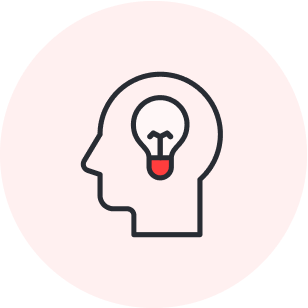
Project manager vs. project owner: Roles and responsibilities
Reading time: about 6 min
Topics:
As a car owner, you’re responsible for everything related to your car—from maintenance to licensing. It would seem odd if, say, your neighbor started telling you where to park. It would be even more odd if the neighbor started washing your car and then demanded the keys. Ownership implies total responsibility. But in the project world, the same rules don’t apply. You might own the car itself, but someone else is responsible for driving it. This is what separates a project owner from a project manager.
This post will cover the difference between a project manager (PM) and a project owner to draw a clear line between the two. Whether you’re thinking of becoming a project manager or are more interested in owning projects, it’s important to understand the expectations for each role so you can be successful in whatever you choose to do. It’s also important for people who work with both project managers and project owners to understand the distinction between roles so they know who to ask for help with various issues.
Project manager vs. project owner
The difference between a project manager and a project owner is this: The project owner is responsible for determining and defining the vision, and the manager is responsible for bringing that vision to life.
For example, if you were a project owner, you could have an idea for a wearable device integrated with AI. It would be up to you to define what the device should achieve and how its success would be important for your organization. Once the project scope has been defined and the funding has been secured, you would then hand the project to a project manager to determine the day-to-day operations that could bring the wearable device to market. Together, you’d work diligently to ensure the project’s success.
It’s possible that the project manager and project owner are the same person, but in large organizations, these roles are performed by two different people.
Similarities between project managers and project owners
Both the project manager and the project owner want the project to succeed. Failure of a project would be a disaster for either role. Here are other ways the roles are similar:
-
They both make important decisions. The project manager makes operational decisions about how to execute the project on both a daily and long-term basis, and the project owner makes higher-level decisions about the project's direction and prioritization.
-
They both work with stakeholders to move the project forward. The project manager keeps stakeholders informed about progress and issues, while the project owner may communicate the project's value and strategic alignment.
-
They both solve problems. Both roles address obstacles that threaten the project’s success. The project manager resolves issues that happen during project execution, and the project owner may need to address broader strategic issues or changes in direction.
-
They both set and work towards goals. The project manager works towards smaller goals that involve day-to-day operations and tasks while the project owner ensures that the project's goals align with broader business or organizational objectives.
The roles do have similar tasks, but project managers deal primarily with logistics, while project owners are more concerned with the strategic goals and direction of the project.
What are a project manager’s responsibilities?
Now that we’ve shown you how the roles are similar, here’s exactly what a project manager does:
-
Project planning. A PM needs to come up with a detailed project plan that contains a scope, objectives, deliverables, timelines, resources, and budget. The plan should also contain project milestones and establish a schedule for completing tasks.
-
Resource management. The project manager needs to identify and allocate the necessary resources for the project. Since resource management involves determining which team members can support the project, the PM needs to manage the project team regularly, including assigning tasks, setting deadlines, and providing guidance.
-
Risk management. A good project manager has a constant pulse on the project. That means identifying potential risks and issues that could impact the project and even developing risk mitigation strategies to proactively manage risks throughout the project lifecycle.
-
Communicate. The PM needs to constantly communicate with everyone involved in the project. They need to provide regular updates on project progress, challenges, and changes to all stakeholders, including team members, clients, and executives.
-
Overseeing project execution. This means coordinating efforts between team members to ensure work is progressing as planned.
-
Performance monitoring. Project managers need to track project performance using metrics and KPIs (key performance indicators) and make adjustments as necessary to keep the project on track.
-
Documentation. The PM will need to maintain comprehensive project documentation, including plans, reports, and records of decisions and changes for future reference.
-
Team leadership. Often, the project manager will be the de facto or defined leader of a project team. That’s a big role that involves fostering a collaborative and productive work environment and resolving conflicts to maintain morale and productivity.
What are a project owner’s responsibilities?
If the project manager role seems like it has a ton of responsibilities, don’t make the mistake of assuming the project owner role is easier. They’re in charge of:
-
Defining the objectives. No vague descriptions here. The project owner must clearly articulate the project's goals and objectives and ensure that the project aligns with broader organizational or business strategies and priorities.
-
Securing funding and resources. A project can’t be successful without the monetary resources it requires. The project owner needs to first obtain the necessary financial resources and budget for the project. Then, the project owner needs to make sure that there are team members and equipment available and committed to the project.
-
Approving scope and requirements. The project owner is tasked with reviewing and approving the project scope, objectives, and key deliverables.
-
Supporting the project manager. The project manager is really the project owner’s biggest ally, and vice versa. A project owner needs to provide support and guidance to the project manager, helping to resolve issues and remove obstacles, while also assisting in decision making and providing strategic input.
-
Making high-level decisions. The project owner makes large, impactful choices. These critical decisions can impact the project's direction, scope, or budget. And if there are major changes to the original plan, it’s the project owner’s job to address them.
-
Championing the project. The project owner is the project’s biggest cheerleader. They need to facilitate buy-in and support from senior management and other key stakeholders at the very beginning and act as a project advocate within the org.
The project owner’s job even extends past the end of the project. They make sure all deliverables are handed over and all documentation is organized. They also arrange post-mortems or other post-project activities. And they’re responsible for passing on their learnings to help guide the success of future projects.
A successful project requires a project owner and a project manager working together to bring the project to fruition. Lucidspark can assist these team members as they guide projects every step of the way, from initial ideation to post-project analysis, so that the project has the greatest chance of success.

Use Lucidspark to plan, organize, and execute your next project.
Learn moreAbout Lucidspark
Lucidspark, a cloud-based virtual whiteboard, is a core component of Lucid Software's Visual Collaboration Suite. This cutting-edge digital canvas brings teams together to brainstorm, collaborate, and consolidate collective thinking into actionable next steps—all in real time. Lucid is proud to serve top businesses around the world, including customers such as Google, GE, and NBC Universal, and 99% of the Fortune 500. Lucid partners with industry leaders, including Google, Atlassian, and Microsoft. Since its founding, Lucid has received numerous awards for its products, business, and workplace culture. For more information, visit lucidspark.com.
Related articles
10 essential project management skills
In this blog post, we’ll cover 10 essential skills project managers need to be successful and how to develop them.
Multi-project management: Tips for success
Discover what multi-project management is, the challenges associated with it, and how to manage multiple projects.
